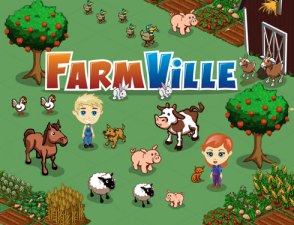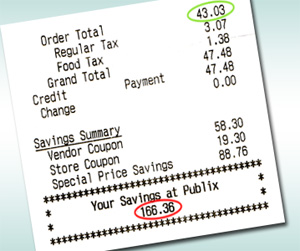The Sunk Cost Fallacy
The Misconception: You make rational decisions based on the future value of objects, investments and experiences.
The Truth: Your decisions are tainted by the emotional investments you accumulate, and the more you invest in something the harder it becomes to abandon it.
 You can learn a lot about dealing with loss from a video game called Farmville.
You can learn a lot about dealing with loss from a video game called Farmville.
You have probably heard of this game. In 2010, one in five Facebook users had a Farmville account. The barrage of updates generated by the game annoyed other users so much it forced the social network to change how users sent messages. At its peak, 84 million people played it, a number greater than the population of Italy.
Farmville has shrunk since then. About 50 million people were still playing in early 2011 – still impressive considering the fantasy megagame World of Warcraft boasts about a quarter as many players.
So, it must be really, really fun. A game with this many players must promise potent, unadulterated joy, right? Actually, the lasting appeal of Farmville has little to do with fun. To understand why people commit to this game and what it can teach you about the addictive nature of investment, you must first understand how your fear of loss leads to the sunk cost fallacy.
Studies by psychologists Daniel Kahneman and Amos Tversky’s going back to the 1970s show you don’t equate loss and gain. Loss is more powerful. When they had subjects gamble in the lab, they noticed people tended to demand the promise of a payoff of at least double what they risked before they agreed to the terms of the game. Loss, they reasoned, was gain times two.
Outside of the lab, the pain you feel when you is lose cash is twice as strong as the joy you feel when you gain an item of equal value. This is why marketing and good salesmanship is often all about convincing you what you want to buy is worth more than what you must pay for it. You see something as a good value when you predict the pain of loss will be offset by your joy of gain. If they did their job well, somewhere in your Byzantine perception you feel as though you won’t lose at all. Emotionally, you will come out ahead. Unless you are buying something just to show others how much money you can burn, you avoid cringing when you fork over your earnings.
Imagine the apocalypse is upon you. Some terrible disease was unleashed in an attempt to cure male pattern baldness. The human population has been reduced to 600 people. Everyone is likely to die without help. As one of the last survivors you meet a scientist who believes he has found a cure, but he isn’t sure. He has two versions and can’t bear to choose between them. His scientific estimates are exact, but he leaves the choice up to you.
Cure A is guaranteed to save exactly 200 people. Cure B has a 1/3 probability of saving 600, but a 2/3 probability of saving no one. The fate of hairlines and future generations is in your hands. Which do you pick?
Ok, mark your answer and let’s reimagine the scenario. Same setup, everyone is going to die without a cure, but this time if you use Cure C it is certain exactly 400 people will die. Cure D has a 1/3 probability of killing no one, but a 2/3 probability killing 600. Which one?
When Tversky and Kahneman presented these two scenarios to doctors, minus the bit about baldness, the majority chose Cure A in the first scenario and Cure D in the second. The catch is both situations are the same, just framed differently.
All their logic and rationality was chewed up when their fear of loss was activated. The wording in the first scenario makes it seems as though you get to save 200 people before the first one dies. The overall loss isn’t emphasized. In the second, it seems as though you lose 400 people before you save anyone. The fear conjured by the emphasis on losing lives in the reframed scenario makes it seem acceptable to take a serious risk. That’s how much you hate loss.
When you lose something permanently, it hurts. The drive to mitigate this negative emotion leads to strange behaviors. Have you ever gone to see a movie only to realize within 15 minutes or so you are watching one of the worst films ever made, but you sat through it anyway? You didn’t want to waste the money, so you slid back in your chair and suffered. Maybe you once bought non-refundable tickets to a concert, and when the night arrived you felt sick, or tired, or hung over. Perhaps something more appealing was happening at the same time. You still went, even though you didn’t want to, in order to justify spending money you knew you could never get back. What about that time you made it back home with a bag of tacos, and after the first bite you suspected they might have been filled with salsa-infused dog food, but you ate them anyway not wanting to waste both money and food? If you’ve experienced a version of any of these, congratulations, you fell victim to the sunk cost fallacy.
Sunk costs are a favorite subject of economists. Simply put, they are payments, investments or costs which can never be recovered. An android with fully functioning logic circuits would never make a decision which took sunk costs into account, but you would. As an emotional human, your aversion to loss often leads you right into the sunk cost fallacy.
Loss aversion is one of your strongest drives. You know a confirmed loss lingers and grows in your mind, becoming larger in your history than it was when you first felt it. Whenever this clinging to the past becomes a factor in making decisions about your future, you run the risk of being derailed by the sunk cost fallacy.
Hal Arkes and Catehrine Blumer created an experiment in 1985 which demonstrated your tendency to go fuzzy when sunk costs come along. They asked subjects to assume they had spent $100 on a ticket for a ski trip in Michigan, but soon after found a better ski trip in Wisconsin for $50 and bought a ticket for this trip too. They then asked the people in the study to imagine they learned the two trips overlapped and the tickets couldn’t be refunded or resold. Which one do you think they chose, the $100 good vacation, or the $50 great one?
Over half of the people in the study went with the more expensive trip. It may not have promised to be as fun, but the loss seemed greater. That’s the fallacy at work, because the money is gone no matter what. You can’t get it back. The fallacy prevents you from realizing the best choice is to do whatever promises the better experience in the future, not which negates the feeling of loss in the past.
Kahneman and Tversky also conducted an experiment to demonstrate the sunk cost fallacy. See how you do with this one.
Imagine you go see a movie which costs $10 for a ticket. When you open your wallet or purse you realize you’ve lost a $10 bill. Would you still buy a ticket? You probably would. Only 12 percent of subjects said they wouldn’t. Now, imagine you go to see the movie and pay $10 for a ticket, but right before you hand it over to get inside you realize you’ve lost it. Would you go back and buy another ticket? Maybe, but it would hurt a lot more. In the experiment, 54 percent of people said they would not. The situation is the exact same. You lose $10 and then must pay $10 to see the movie, but the second scenario feels different. It seems as if the money was assigned to a specific purpose and then lost, and loss sucks. This is why Farmville is so addictive people have lost their jobs over it.
Farmville is a valuable tool for understanding your weakness in the face of loss. The sunk cost fallacy is the engine which keeps Farmville running, and the developers behind Farmville know this.
Farmville is free, and the first time you log on you are transported to a netherworld patch of grass where you float above an abeyant young farmhand eager to get to work. His or her will is your will, and his or her world is empty save a patch of land ready to be plowed and a crop of vegetables ready to be picked.
Wading into the experience, you feel the game designers have made every attempt to turn your head toward the screen in a way which brings no attention to the grip on your scalp. It is all your choice, they seem to be saying, no one is forcing you to proceed. Here, harvest these beans. Hey, why not plant some seed? Oh, look, you could plow a patch of land, you know, if you want. A loading bar appears and then quickly fills as you watch your grinning Aryan-ish avatar with his messy-on-purpose haircut virtually dirty his digital overalls. The cheery music, which sounds like the cyborg interpretation of clumsily extracted memories from the brain of a reanimated Old West piano player, drones on and on. The moment the loop restarts is difficult to pinpoint.
Within a few minutes, you’ve done everything which can be done on your first garden, but there are hints all over the screen portending a fully functioning Texas-ranch-sized megafarm, should you plant your seeds well. Once you learn you must wait at least an hour or so to continue, you start clicking around and find you have coins and cash which can be spent on trees, plants, seeds, an impressive bestiary of jaunty fantastical creatures and a bevy of clothes, devices, buildings and props. You have just enough currency when the game starts to buy a caramel apple tree or some honeybees, but the nice stuff like pink tractors and magic waterfalls, will have to wait until you’ve played the game a while. If you stay vigilant, checking back throughout the day to see how close your strawberries are to being ripe or if a wandering animal has visited your feed trough, you can earn more virtual currency and advance in levels and unlock more stuff. You’ll need to plant and plow and harvest to advance, most of which is also an investment in something which must be harvested…later.
This is the powerful force behind Farmville. Playing Farmville is a commitment to a virtual life form. Your neglect has consequences. If you don’t return, your investments die and you will feel like you wasted your time, money and effort. You must return, sometimes days later, to reap the reward of the time and virtual money you are spending now. If you don’t, not only do you not get rewarded, you lose your investments.
 To stave off these feelings you can pay Farmville real-world money or participate in offers from their advertisers to negate the need to tend to certain things, reverse the death of crops and expand your farm ahead of schedule. You can also ask your friends to help, since the game has tendrils reaching deep into Facebook.
To stave off these feelings you can pay Farmville real-world money or participate in offers from their advertisers to negate the need to tend to certain things, reverse the death of crops and expand your farm ahead of schedule. You can also ask your friends to help, since the game has tendrils reaching deep into Facebook.
Although all these strategies will keep the fallacies at bay for a few days, they also feed them. The urge to stay the course and keep your farm flourishing gets more powerful the more you invest in it, the more you ask others for help, the more time you spend thinking about it. People set alarms to wake up in the middle of the night to keep their farm alive. You continue to play Farmville not to have fun, but to avoid negative emotions. It isn’t the crop you are harvesting, but your fallacies. You return and click to patch cracks in a dam holding back something icky in your mind – the sense you wasted something you can never get back.
To say Farmville has been successful is a silly sort of understatement. It has led to the creation of a whole new genre of entertainment. Hundreds of millions of dollars are being generated by social gaming, and like so many profitable businesses, someone is hedging their bets against a predicable weakness in your behavior in order to turn a profit.
Farmville players are mired in a pit of sunk costs. They can never get back the time or the money they’ve spent, but they keep playing to avoid feeling the pain of loss and the ugly sensation waste creates.
You may not play Farmville, but there is probably something similar in your life. It could be a degree you want to change, or a career you want to escape, or a relationship you know is rotten. You don’t return to it over and over again to create good experiences and pleasant memories but to hold back the negative emotions you expect to feel if you accept the loss of time, effort, money or whatever else you have invested.
If you dropped your cell phone over the edge of a cruise ship, you would need James Cameron’s unmanned submarine fleet to find it again. Sure, you could spend a small fortune to retrieve it, but you wouldn’t throw good money after bad. Laid out like this, logical and rational and easy to pick apart, you can pat yourself on the back for being such a reasonable human. Unfortunately, the sunk costs in life aren’t always so easy to see. When something is gone forever it can be difficult to realize it. The past isn’t as tangible a concept as the sea floor, yet it is just as untouchable. What is left behind is just as irretrievable.
Sunk costs drive wars, push up prices in auctions and keep failed political policies alive. The fallacy makes you finish the meal when you are already full. It fills your home with things you no longer want or use. Every garage sale is a funeral for someone’s sunk costs.
The sunk cost fallacy is sometimes called the Concorde fallacy when describing it as an escalation of commitment. It is a reference to the construction of the first commercial supersonic airliner. The project was predicted to be a failure early on; but everyone involved kept going. Their shared investment built a hefty psychological burden which outweighed their better judgments. After losing an incredible amount of money, effort and time, they didn’t want to just give up.
It is a noble and exclusively human proclivity, the desire to persevere, the will to stay the course – studies show lower animals and small children do not commit this fallacy. Wasps and worms, rats and raccoons, toddlers and tikes, they do not care how much they’ve invested or how much goes to waste. They can only see immediate losses and gains. As an adult human being, you have the gift of reflection and regret. You can predict a future place where you must admit your efforts were in vain, your losses permanent, and when you accept the truth it is going to hurt.
 You Are Not So Smart – The Book
You Are Not So Smart – The Book
If you buy one book this year…well, I suppose you should get something you’ve had your eye on for a while. But, if you buy two or more books this year, might I recommend one of them be a celebration of self delusion? Give the gift of humility (to yourself or someone else you love).
Preorder now: Amazon - Barnes and Noble – Borders - Book A Million




0 comments:
Post a Comment